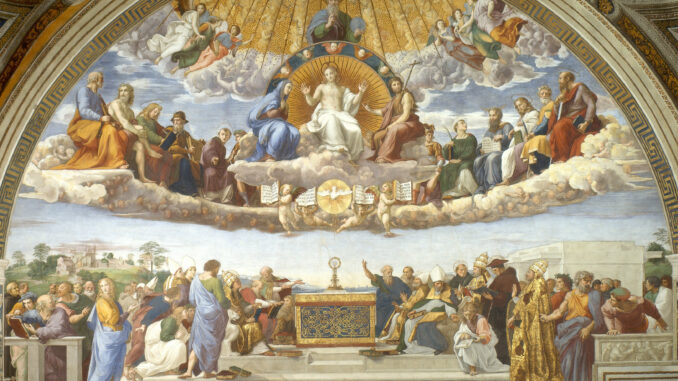
Arthur Pink wrote his book “The Ten Commandments” in 1941 a year marked by continued war in Europe. According to several projects studying war deaths, one of the deadliest years from war in history. Pink’s writing was surely influenced by the nearly two years of war in which the British had been engaged against Germany. His publisher stated in the preface to the book: “Today is a day of lawlessness. The spirit of our times is one of unbounded ‘freedom,’ one of casting off all restraints, despising all authority. Since God Himself is no longer feared by the majority, many no longer respect the God-ordained authority of governments, parents, church leaders, and educators.”
Over the next 12 weeks, we will explore the Ten Commandments through the words and admonishments of Arthur Pink. This week, we begin with his introduction to “The Ten Commandments”:
The Christian life hinges on two essentials: a clear knowledge of duty and the conscientious practice of that duty. Understanding and obeying God’s will is crucial for eternal salvation. To guide us, God has inscribed His laws in the Scriptures, with the Ten Commandments serving as a summary.
The Decalogue’s delivery to Israel was awe-inspiring, teaching the necessity of preparation and reverence for God. The ceremonies and restrictions around Mount Sinai symbolized the need for sanctity and respect in God’s presence. This event highlighted both God’s majesty and the seriousness of His laws.
Their unique status is evident from the remarkable phenomena accompanying their delivery, such as the audible voice of God, clouds, darkness, thunder, lightning and a trumpet. These Commandments alone were inscribed by God on stone tablets and stored in the Ark, underscoring their divine importance.
The Ten Commandments are rooted in love, as emphasized by God’s preface: “I am the Lord your God, who brought you out of Egypt.” This shows God’s laws are not just commands but expressions of His loving character.
The binding nature for all generations of these commandments is clear. Their foundation in God’s unchanging righteousness, Christ’s perfect obedience, and its reiteration in the New Testament (e.g., Romans 3:31) affirm its everlasting relevance.
The number ten symbolizes their completeness, representing a perfect moral code. This symbolic significance is echoed in various biblical contexts, like the plagues of Egypt.
God’s design in dividing the Commandments onto two tablets reflects two categories: duties towards God and duties towards others. This division emphasizes the importance of both piety and social ethics.
The Law demands internal obedience of the heart, not just external actions. It governs our thoughts, desires, and intentions, requiring holiness in all aspects of life.
The Law reveals God’s standard of righteousness and our own unrighteousness. It convicts us of our sins, shows our need for grace, and guides believers on their spiritual journey.
God’s promises and sanctions attached to the Commandments motivate obedience and deter rebellion, illustrating the consequences of our choices. Thus, we are informed that those who perform His bidding shall not labor in vain, just as rebels shall not escape with impunity.
The Decalogue’s broad scope covers all moral actions. The rest of the Scriptures are but a commentary on the Ten Commandments, filled with arguments for obedience, promises of blessing, warnings against transgression, and historical examples. The New Testament passages are but explications, amplifications, and applications of the Ten Commandments. In each Commandment the chief duty or sin is taken as representative of all the lesser duties or sins, and the overt act is taken as representative of all related affections. Whatever specific sin be named, all the sins of the same kind, with all the causes and provocations thereof, are forbidden, for Christ expounded the sixth commandment as condemning not only actual murder, but also rash anger in the heart. Second, when any vice is forbidden, the contrary virtue is enjoined, and when any virtue is commanded, the contrary vice is condemned. For example, in the third God forbids the taking of His name in vain, so by necessary consequence the hallowing of His name is commanded. And as the eighth forbids stealing, so it requires the contrary duty-earning our living and paying for what we receive (Ephesians 4:28).
Arthur W. Pink, born in Nottingham, England, in 1886, pastored churches in Colorado, California, Kentucky, and South Carolina. He moved to Sydney, Australia, and then returned to England in 1934. Pink relocated to Lewis, Scotland, in 1940 and remained there until his death in 1952 at the age of 66.



